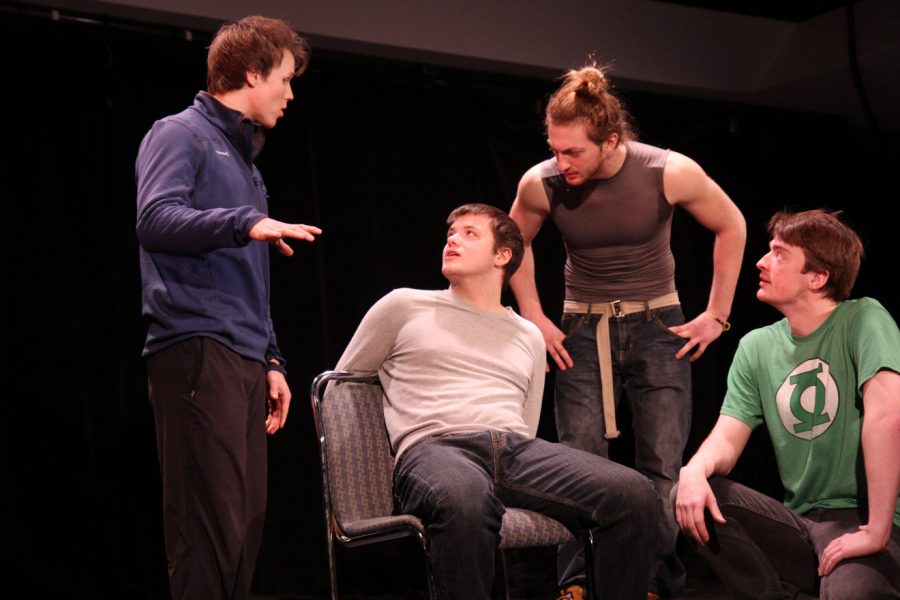Audience to keep actors on toes at improv production
December 3, 2014
The School of Theatre and Dance’s Storytellers Theatre shifts its focus to improvisational comedy in its studio series today.
Storytellers Theatre began as a collection of narratives and children’s stories that actors perform in their own words. This year, actors will host a collective improvisational show which will include a series of short-form interactive games, and they will ask the audience to give suggestions during the show.
Richie Vavrina, graduate design and technology student, said a few of the coolest things about improv are its ability to train the brain to think quickly and how it can make the audience laugh.
“Improv comedy is literally a bunch of people up on stage … and we describe the format of a game,” Vavrina said. “And we ask for a suggestion [from the audience] and it could be anything. It could be vacuums, it could be dragons, it could be anything that your mind thinks of … . Basically, we do with it what we can and we try to make you laugh, and most of the time we succeed.”
One of the improv scenes is a word game that limits actors’ dialogue while challenging them to push a narrative forward.
“We have one game called two-line vocabulary, where it’s three people who come out on stage,” said Shawn Thomas, junior theatre studies major and assistant coach to the actors. “One of them gets to say whatever they want to advance the scene forward and the other two are restricted to saying only two lines of dialogue. It could be something as simple as, ‘Could you run that by me again?’ They’re only allowed to say that and, ‘Oooh, those scissors look sharp.’
“They do a scene, and it’s basically a good test of vocal inflection — how they can say the same sentence with different meanings.”
John Reichenbach, junior theatre studies major, said he initially found improvisational acting difficult compared to standard acting.
“Coming from an acting background where all the lines are given to me and everything is laid out ahead of time, that usually puts me in my head, where I’m thinking about the lines and I’m thinking about the emotion that’s going on within my character …,” Reichenbach said.
“With this, your emotions are driving what is happening and you don’t choose your words. Your words just come out and it flows naturally and freely … . It has enriched my vocabulary and my ability to think on my feet … .”







